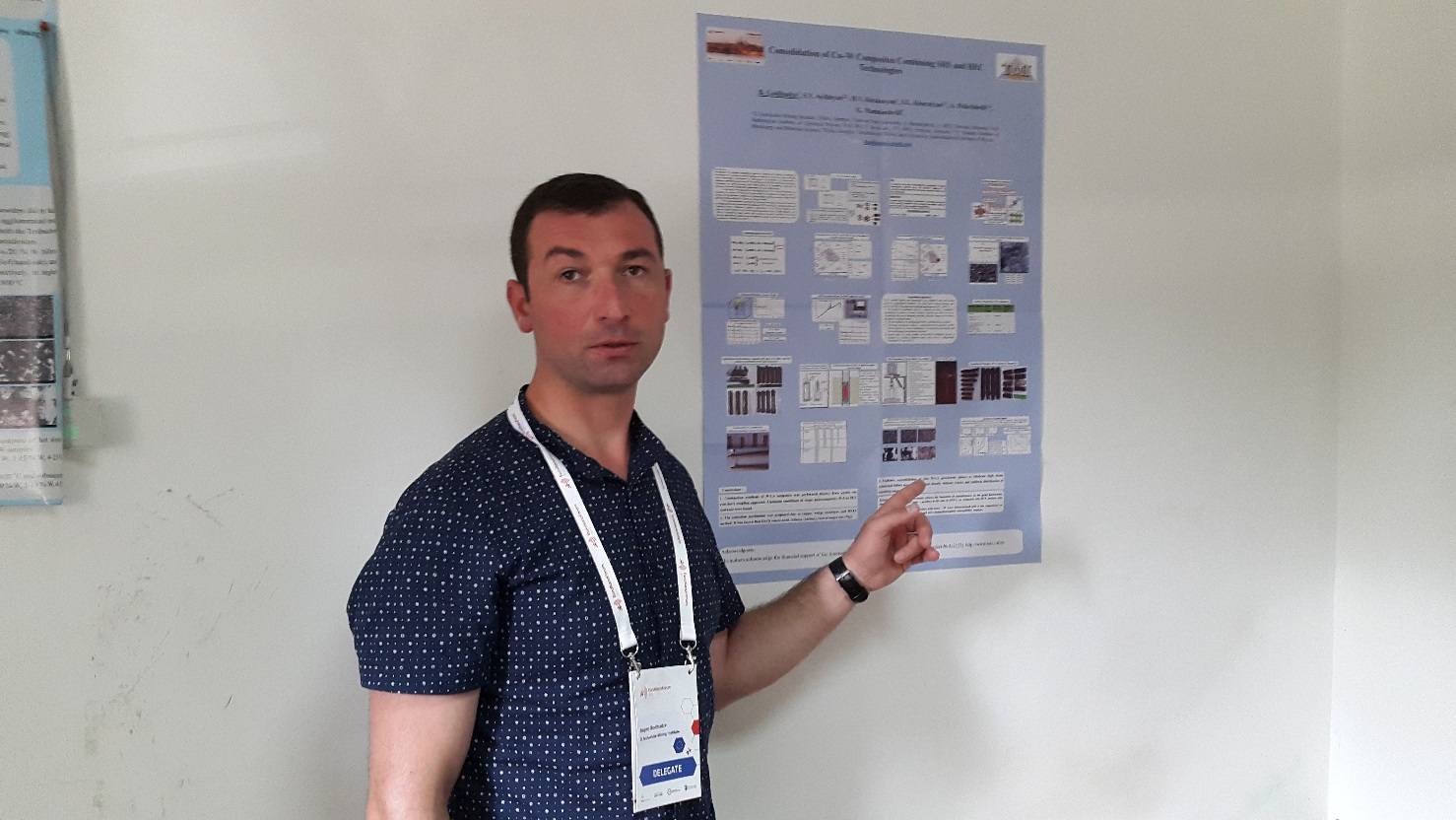The EuroNanoForum2017 on June 21-23, Valletta, Malta

In this work a new approach for the preparation of Cu-W composite materials was proposed, the essence of which is the joint reduction of tungsten and copper oxides by energy saving Combustion Synthesis (CS) or Self-propagating High-temperature Synthesis (SHS process) method using Mg+C mixture as combined reducer. This work was fully supported by ISTC and implemented as ISTC regular project A-2123.
Dr. Bagrat Godibadze (G.Tsulukidze Mining Institute, Blasting Technology Department, High-Tech Materials Laboratory. Tbilisi, Georgia) is proposing the use of W-Cu nanocomposites developed by CS process were subjected to densification into cylindrical rods using hot explosive consolidation (HEC) technology to fabricate high dense cylindrical billets. Preliminary explosive densification of the Nano-crystalline W-Cu precursor powder blend is carried out at room temperature with a loading intensity up to 10GPa to increase the initial density and to activate the particle surfaces in the blend. Already predensified cylindrical rods are reloaded by primary explosive shock wave, but at a temperature from 800 up to 1050°C.
The investigations showed that explosive consolidation of CS Nano-powders allows to consolidate cylindrical billets near to theoretical density without cracks and cavities. The obtained samples are characterized with good integrity, which depends on the distribution and size of the W and Cu particles.
It was further established that the electrical properties (resistance and dependence of the susceptibility) of the consolidated W-Cu composites are changed depending on phase content and density of the consolidated samples. Combination of CS and HEC undoubtedly has advantages compared to other technologies and may be considered as an alternative way to fabricate novel Cu–W composites with enhanced properties.
Mr. Godibadze presented all experimental methods, procedures and investigated results of obtained bulk composition materials on the EuroNanoForum2017 (21-23 June 2017, Valletta, Malta. http://euronanoforum2017.eu) with a range of ISTC support.
The EuroNanoForum biannual conference series has grown since 2003 into the most significant European forum offering opportunities for discussions among scientists, industrialists and policy makers, focusing on the use of research results in the various nanotechnology fields and associated industrial sectors. Nanotechnology, being the main topic of the EuroNanoForum, is one of the Key Enabling Technologies (KETs) of the Horizon2020’s (H2020) Leadership in Enabling and Industrial Technologies pillar, offering potential for major breakthroughs in a wide range of materials, technologies and applications. It has a strong role in supporting European competitiveness and Industrial Leadership, but also presents opportunities for the Societal Challenges of health, energy and the environment.
.jpg)
Bagrat Godibadze, Materials Science Ph.D. Senior Researcher at G.Tsulukidze Mining Institute, Blasting Technology Department, High-Tech Materials Laboratory. (http://euronanoforum2017.eu).

